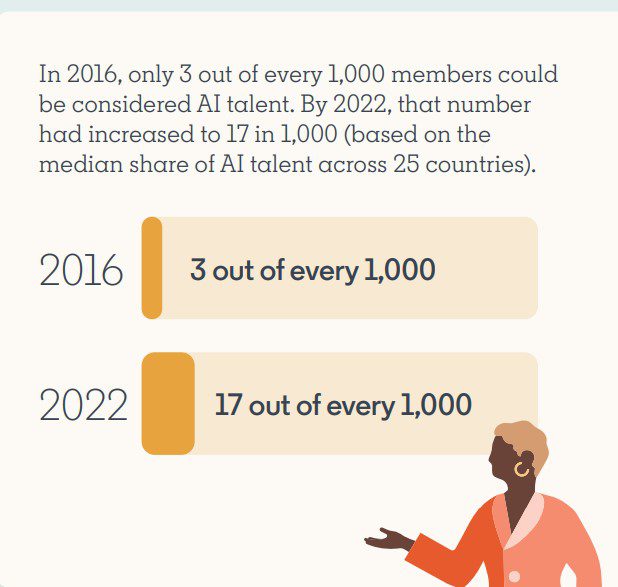LinkedIn: People skills are more valuable than AI skills
That’s according to 92% of US executives surveyed by the professional social network.
News In Brief
AI could make the world of work more human.
But only if organizations embrace it, according to LinkedIn's new data.
Here's the inside track, featuring comments from LinkedIn CEO and chief economist.
AI is ushering into a new era of work – one that is, ironically, may be more human.
Talking about recent LinkedIn research, the professional network’s chief economist Dr Karin Kimbrough commented: “AI will certainly change the way that many of us do our jobs, and the time we spend on tasks that potentially can be aided by generative AI.”
LinkedIn predicted that more than eight in ten of its members can automate a quarter of their tasks with AI.
Dr Kimbrough added: “As a result, people skills – the skills that only humans can perform, like creative thinking, leadership and communication, and ensuring ethical outcomes – are also becoming increasingly important.”
92% of leaders in the US and the UK surveyed for LinkedIn’s executive confidence index believe that people skills are more important than ever.
72% of US executives see these people skills are being more valuable to their organization than AI skills.
The fastest in demand skills in the US was flexibility (158%), professional ethics (120%), social perception (118%), and self-management (83%).
Dr Kimbrough continued: “As we learn how to leverage AI properly, it can serve as a great productivity resource to both companies and professionals across the globe.”
Rethinking jobs and skills
People skills may come out on top, but that doesn’t mean AI skills aren’t relevant or important.
Employers are increasingly looking for workers who understand how to leverage AI, according to LinkedIn data. 47% of US executives and 52% of UK leaders believe that generative AI will drive productivity at work.
The good news is that employees are aware and upskilling themselves in the realm of AI.
LinkedIn’s AI skills index data found that the number of AI-skilled workers using the platform was nine times larger than in 2016.

Credit: LinkedIn’s Future of Work Report: AI at Work report.
Writing on LinkedIn, the company’s CEO Ryan Roslansky stated: “As AI starts to change how we work, it’s going to force us to change how we define jobs.
“Instead of job titles, we all need to start seeing any job as a collection of tasks, and understand that those tasks will change regularly as AI continues to advance.”
Employers and employees alike need to get on board – or risk being left behind.
Roslansky concluded: “Bringing a skills-first approach to the center of talent management is the surest way to expand your talent pools, upskill your current employees, and build agility into your workforce.”
Sign up to the UNLEASH Newsletter
Get the Editor’s picks of the week delivered straight to your inbox!

Chief Reporter
Allie is an award-winning business journalist and can be reached at alexandra@unleash.ai.
